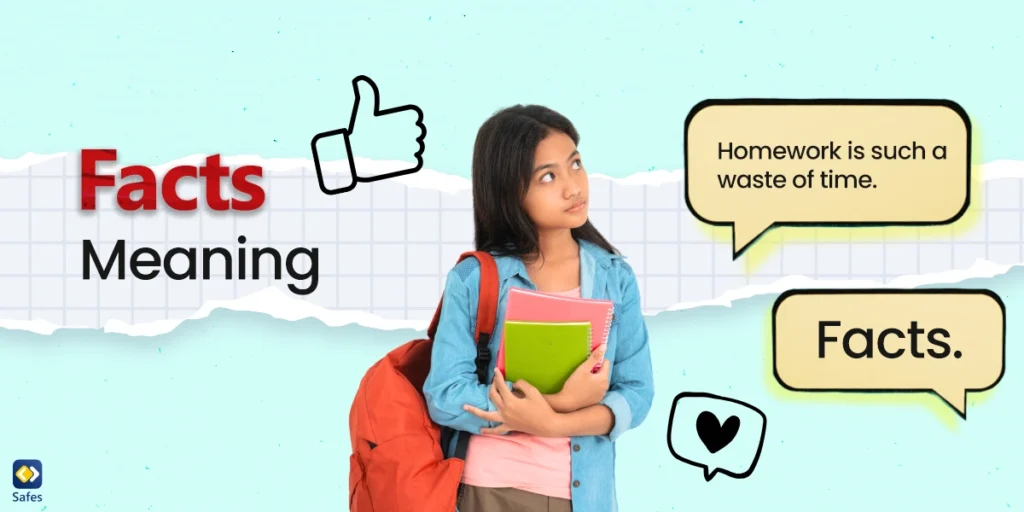Growing up with grandparents playing a big role in your life can be a unique and enriching experience. They often bring a wealth of wisdom, love, and a deep-rooted sense of tradition. But this idea, being raised by grandparents, isn’t always about the love and wisdom they bring. It comes with various complexities and disadvantages.
Download and Start Your Free Trial of the Safes Parental Control App
In this blog, we’ll discuss the effects of growing up with grandparents and how these children differ from other kids of the same age. We’ll also discover if these circumstances generally lead to positive outcomes or potential negatives. But first, let’s see why grandparents sometimes love their grandchildren even more than their own children. Based on this fact, can we conclude that children can be raised happily by grandparents?
Why Is There a Special Bond Between Children And Grandparents?
The unconditional love that grandparents feel for their grandchildren is a complex interplay of evolutionary, biological, and socio-cultural factors, contributing to the deep and enduring bond between generations. There are several scientific explanations for the unconditional love that grandparents often feel for their grandchildren. One reason is rooted in evolutionary biology. According to evolutionary theory, grandparents and parents play a crucial role in the survival and reproductive success of their offspring. Investing time and resources in grandchildren can increase the likelihood of their genes being passed on to future generations, thus promoting the survival of their genetic lineage.
Additionally, the bond between grandparents and grandchildren is often strengthened by oxytocin, commonly known as the “love hormone.” Oxytocin is released during nurturing behaviors, such as holding, cuddling, and caregiving, and it fosters feelings of bonding and attachment. Grandparents experience a surge of oxytocin when interacting with their grandchildren, deepening the emotional connection between them.
Furthermore, social and cultural factors also contribute to the strong bond between grandparents and grandchildren. Grandparents often see themselves as guardians of family traditions, values, and cultural heritage, and they take pride in passing these down to the younger generations. This sense of generational continuity and shared identity develops a sense of closeness and belonging between grandparents and grandchildren.

How Does Being Raised by Grandparents Affect a Child?
Grandparents raising children can bring both positive and negative effects on a child’s development and well-being. On the positive side, grandparents often provide a nurturing and stable environment for the child, offering love, support, and wisdom gained from their own life experiences. They may also instill important values, traditions, and cultural heritage, enriching the child’s sense of identity and belonging. Moreover, in this time and age, technology for seniors has greatly improved their quality of life, allowing them to be updated and understand the young generation.
How Does Living with Seniors Negatively Impact Kids?
However, being raised by grandparents can be challenging, as well. Based on an article by a group of professionals including Yanfeng Xu, grandchildren raised by their parenting grandparents tend to have more mental and behavioral issues. They tend to struggle more in school compared to those raised by their parents. This article, Mental/behavioural Health and Educational Outcomes of Grandchildren Raised by Custodial Grandparents, also reveals that they might do better than children in institutional care or foster care.
As with other negative effects of grandparents raising grandchildren, grandparents may face physical limitations or health issues that can impact their ability to provide adequate care. Financial constraints or limited resources also may not be enough to meet the child’s needs. Moreover, generational differences between grandparents and grandchildren may lead to conflicts or misunderstandings, particularly as the child grows older and seeks greater independence. These all can lead to grandparents’ disability to perform successful parenting for children and fulfill their needs.

What Is the Difference Between Children Living with Grandparents And Other Kids?
Children raised by over-involved grandparents may experience some differences compared to other kids who are raised in more traditional family structures. Here are a few key distinctions:
- Generational Gap: These children may experience a significant generational gap between themselves and their caregivers. This can lead to differences in values, beliefs, and cultural norms, which may influence the child’s worldview and identity.
- Parental Involvement: In some cases, children who live with their grandparents may have limited or no contact with their biological parents due to various reasons such as parental absence, incapacity, or loss. This lack of parental involvement can make a highly sensitive child with an impacted sense of belonging and identity.
- Role Reversal: As primary caregivers, the roles of a grandparent may experience a reversal situation, where they take on parental responsibilities later in life. This dynamic can negatively impact the family structure and may influence how discipline, authority, and caregiving are handled.
- Support Systems: Children living with grandparents may have access to different support systems compared to other kids. They may receive additional support from social services, community organizations, or support groups specifically designed for grandparents raising grandchildren.
Final Word
Being raised by grandparents can have a profound impact on a child’s life, shaping their identity, values, and relationships in both positive and negative ways. The generational gap, physical limitations, and lack of financial stability are all the potential pitfalls of being raised by grandmother and grandfather. Therefore, it’s important to raise the knowledge about the life situation of children who have to live with their grandparents. We also need to provide them with love, support, and understanding.
Safeguarding the well-being of children, not only in real life but also in the digital world is our main duty. This requires a collective effort from families, communities, and policymakers to ensure that every child has access to the resources, care, and protection they need to thrive. If you’re wondering how to provide a safe and supportive environment in the online world for your children, Safes is here to help!
Safes is a parental control app designed to help parents monitor and manage their children’s online activities across various devices. This app contains more advanced features than other devices’ parental control settings, such as Windows parental controls. It allows parents to set limits on screen time, block inappropriate content, track location, and monitor social media usage, among other features. Safes helps parents establish healthy digital habits for their children while ensuring their safety and well-being in the online world. You can download the app for Android and iOS, as well as benefit from our free trial.
Your Child’s Online Safety Starts Here
Every parent today needs a solution to manage screen time and keep their child safe online.
Without the right tools, digital risks and excessive screen time can impact children's well-being. Safes helps parents set healthy boundaries, monitor activity, and protect kids from online dangers—all with an easy-to-use app.
Take control of your child’s digital world. Learn more about Safes or download the app to start your free trial today!




